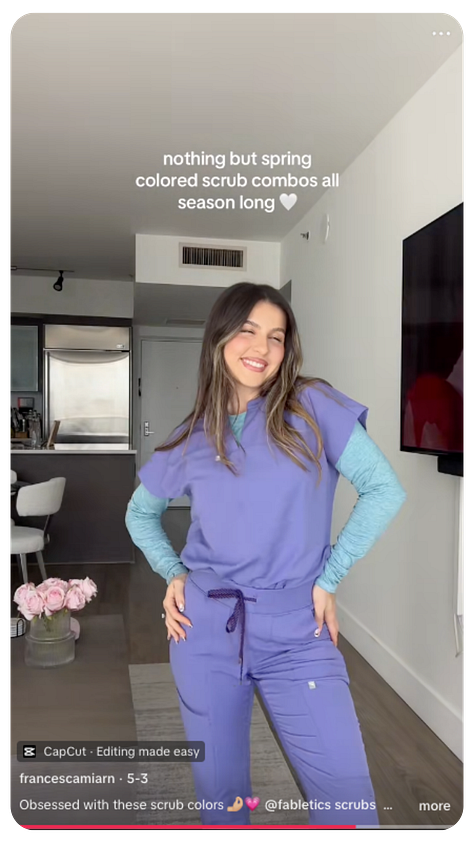For years, we've been sold the ultimate digital-age career fantasy: quit your 9-to-5, become a full-time creator, and trade fluorescent office lighting for ring lights and brand trips to Bali.
The creator economy promised freedom from corporate hierarchies, the chance to monetize your authentic self, and the allure of being your own boss. And for a while, that seemed like the only path to digital success.
But something interesting is happening in 2025. Some of the most engaging creators in our feeds aren't the ones who've escaped corporate America—they're the ones still very much in it, filming content between meetings and using PTO for both vacation and content creation. 💼✨
That full-time creator aspiration hasn't disappeared—but it's being challenged by a rising breed of digital voices who are intentionally keeping their corporate emails, balancing Slack notifications with content schedules, and showing us that maybe the dream isn't about escaping work but reimagining our relationship with it.
✨ The Great Creator Reality Check of 2025
I recently read the Forbes article "The Rise of the Relatable Creator," which confirms what our algorithms have been quietly suggesting: in an economic moment marked by uncertainty, layoffs, and inflation anxiety, audiences are gravitating toward digital voices who understand the Monday morning meeting dread on a deeply personal level.
What we're seeing is economic adaptation happening in real-time. As financial anxiety rises, our digital consumption habits are shifting toward what I'm calling "stability content": proof that someone can navigate both corporate structures and creative expression without sacrificing either.
🔄 The Professional-Creator Duality Isn't a Fallback—It's a Strategy
These creators aren't diluting their influence by diversifying their resumes—they're enhancing it through strategic authenticity: the calculated vulnerability of showing just enough professional reality to be relatable without compromising either career. The corporate-creator duality offers something neither path alone can provide.
Financial stability that empowers them to decline misaligned brand deals
Professional credibility that enhances creator authority
A recession-resistant personal brand that doesn't collapse when TikTok changes its algorithm (again)
👀 Proof This Shift Is Real
The dual-career creator trend is gaining momentum across platforms. Consider these examples:
Kate Bartlett surprised her million-plus followers by enrolling in NYU's MBA program after establishing herself as a successful full-time creator. Far from diminishing her influence, this professional development move will continue to amplify her authority in the fashion and lifestyle space and resonate with her followers.
Jenna Palek has moved fluidly between creator and professional worlds, working temporarily as Waterboy's social media manager and completing barre teacher training to become an instructor at TruFusion—all while maintaining her creator presence. Her audience has responded positively to this integration of professional development and content creation.
Then there are smaller creators who are growing rapidly because of their relatability. Francesca Mia, the Miami-based Latina creator and registered nurse, has generated over 3 million likes on TikTok precisely because she authentically showcases wellness, fashion, and beauty while navigating a demanding healthcare profession.






📊 The Economics Behind This Cultural Shift
This doesn't mean aspirational content is disappearing—we still crave those glimpses into lives different from our own. Full-time creators still deliver the escapism we need when reality feels overwhelming.
But the rise of the professional-creator represents something more nuanced: a direct response to our generation's economic reality. When housing costs surge, layoffs circulate, and student loans resume, our digital consumption naturally shifts toward creators who acknowledge these constraints while still offering pathways for growth.
🎯 What This Means For You:
📱 For aspiring creators: Your day job isn't just funding your creator dreams—it's potentially adding unique value to your content that full-time creators can't match. What professional expertise could become your content differentiator?
💼 For brands: The most effective partnerships might not be with full-time creators but with professionals who create. Their built-in expertise and relatability can translate to higher trust and conversion.
🫂 For all of us: Perhaps the old binary of "passion vs. paycheck" was always artificial. The most fulfilling path might be integration rather than escape.
I would love to know: Are you finding yourself more drawn to creators who maintain professional careers? Or do you still prefer the full-time creator aesthetic? The comments section is open for your thoughts.💬






